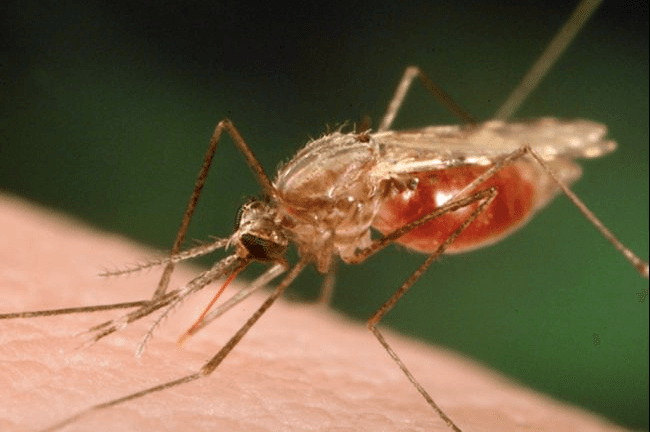New malaria vaccine shows promising results
An Anopheles funestus mosquito.
A new malaria vaccine has shown promising results in early clinical trials, after researchers found that injecting patients with live-but-weakened malaria causing parasites appeared to create a protective effect.
A Phase I study, published in the journal Science this week, involved 57 participants, 40 of whom received varying does of the so-called PfSPZ vaccine and 17 who did not.
Those who were given the vaccine were then split into two groups and exposed to the bite of malarial mosquitoes: one group received a high dosage of the vaccination, and the other received a low dosage, per a press release from the National Institute of Allergy and Infectious Disease.
Although the sample size was small, the results were impressive: a mere three out of 15 of the participants who were given a high dosage contracted malaria, while 16 out of 17 with the lower dosage became infected.
The test group with no vaccination at all saw 11 out of 12 participants become infected after contact with malarial mosquitoes.
More from GlobalPost: Can inhaling nitric oxide gas save children from malaria?
How does it work? The unconventional technique saw researchers collect malaria parasites in their immature sporozoite stage, in which they usually travel to the human liver after a bite takes place and begin their unpleasant reign.
The PfSPZ vaccine is composed of weakened versions of these sporozites, which, when injected into the human body, appear to spur the system into producing more anti-malaria antibodies and more T cells — a type of immune system cell — specific to the vaccine.
"These data indicate that there is a dose-dependent immunological threshold for establishing high-level protection against malaria that can be achieved by IV administration of a vaccine that is safe and meets regulatory standards," the researchers wrote in the Science abstract.
"This was something that everybody said was not possible. And here it is," said researcher and Navy Captain Judith Epstein to Reuters.
"We're in the first stages now of really being able to have a completely effective vaccine," she said, adding that she hopes to see the vaccine licensed within three to five years.
Malaria is one of the biggest killers on the planet, infecting an estimated 219 million in 2010 alone. The WHO estimates that 3.3 billion people, or half the planet's population, are currently at risk from malaria. The majority of deaths occur among African children.
Every day, reporters and producers at The World are hard at work bringing you human-centered news from across the globe. But we can’t do it without you. We need your support to ensure we can continue this work for another year.
Make a gift today, and you’ll help us unlock a matching gift of $67,000!
